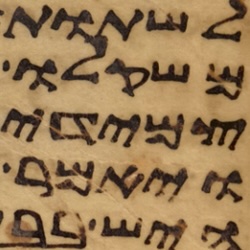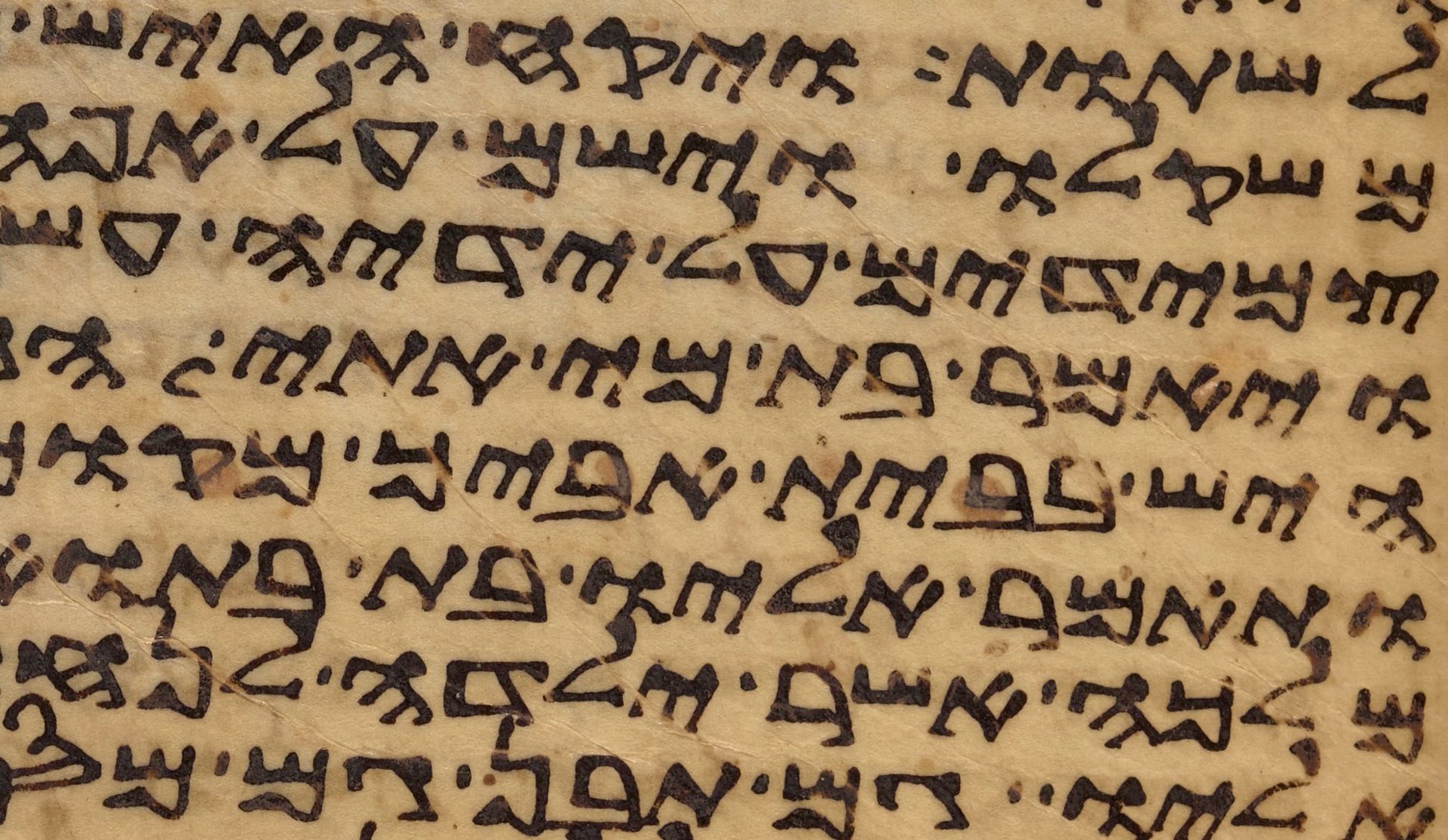Samaritan Manuscripts

The John Rylands Research Institute and Library holds over 370 Samaritan manuscripts and letters dating from the 13th century through to the early 20th century. Samaritans are an ethnic religious community that claims descent from the Israelites of Samaria, an ancient region located in the southwest of the modern-day Levant, between Judea and Galilee. The Samaritan population resides near the Palestinian city of Nablus (known in Hebrew as Shechem), which is one of the oldest cities in existence. Mount Gerizim, whose three peaks tower above the walls of the age-old metropolis, has been home to the Samaritan community for around three and half thousand years.
At present our digital special collection represents a fraction of the Samaritan material held at the John Rylands Research Institute and Library, but nevertheless reflects its rich diversity. It includes biblical, liturgical and historical works, astronomical and calendrical texts, photographs, and correspondence between Rabbi Dr Moses Gaster and the Samaritan community.
A wealth of Samaritan material
The digitised Samaritan manuscripts collection at the Rylands includes the earliest dated manuscript of the whole Samaritan Pentateuch (Samaritan MS 1, dating from AH 607/1211 CE) to be found outside Nablus. The Samaritan Pentateuch is sacred scripture that also corresponds to both the Jewish Torah and the first five books of the Christian Old Testament.
In addition to the different manuscripts, the collection features correspondence (in Hebrew, written in the Samaritan script) between the Samaritan community in Nablus/Shechem and Rabbi Dr Moses Gaster (1856-1939). Originally from Romania, Gaster was a notable Jewish scholar with an acclaimed expertise in Samaritan language and literature. Our digitised collection of Hebrew manuscripts contains a large number of items from Gaster’s collection. A digitised collection of amulets belonging to Gaster is also publicly available to explore. Our A-Z listing for the Moses Gaster Collection provides further detail about the vast array of Gaster items in our special collections.
How the Samaritan Manuscript collection came to be at the Rylands
The first 27 Samaritan codices of the Samaritan Manuscript collection were acquired by the library in 1901, in conjunction with its Crawford collection. The Earl of Crawford acquired these manuscripts prior to 1874 but there is no recorded information about their previous history.
In 1954, the Library also acquired approximately 350 further manuscripts from the collection of Rabbi Dr Moses Gaster. More is known about the origin of these manuscripts: Gaster was in direct contact with the Samaritan community in Nablus/Shechem, and a significant number of the manuscripts he possessed were copied specifically for him. Further study of his correspondence with the community may bring to light more details about his acquisitions.
The first 27 Samaritan codices were catalogued in 1938 by Edward Robertson (Robertson, E. Catalogue of the Samaritan Manuscripts in the John Rylands Library Manchester. Manchester: Manchester University Press, 1938). Robertson also later catalogued the collection’s Gaster manuscripts, along with a small number of additional manuscripts, in 1962 (Robertson, E. Catalogue of the Samaritan Manuscripts in the John Rylands Library, Manchester. Volume II: The Gaster Manuscripts. Manchester: Manchester University Press, 1962).
Why we chose the items in the digital Samaritan Manuscripts collection
Items within this digitised collection were selected by the Curator to reflect the variety of material held in our physical Samaritan Manuscripts collection. Some, too, such as the Samaritan Pentateuch (Samaritan MS 1), were also chosen.



